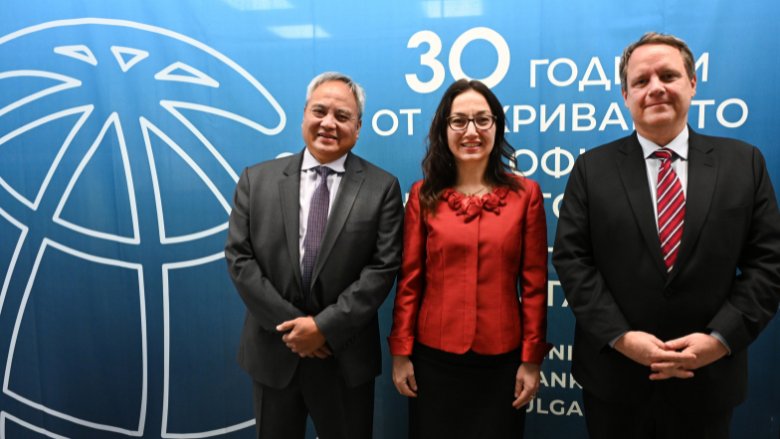Looking back – historic milestones
Bulgaria signed the Articles of Agreement on September 25, 1990, and the country office was opened two years later in 1992. The first Resident Representative to Bulgaria was John Wilton and the first operation provided $17 million in technical assistance for economic reform. Since then, the World Bank has worked with 19 successive governments, including eight caretaker governments.
Caption: A screenshot from the loan documents of the World Bank operation in Bulgaria.
During the past 30 years, the World Bank has provided $D3.3 billion in financing spread across 45 operations.
Throughout the partnership, World Bank engagement has been tailored towards transforming the economy from a centralized and planned one to an open and market-based upper middle-income EU country.
Later, World Bank support was instrumental in identifying Bulgaria’s most difficult development challenge – demographics. In 2007 the World Bank regional report called From Red to Grey identified the aging challenge Bulgaria is facing. Since then, several reports have been published taking a closer look into these demographic challenges.
Gradually, the partnership between the World Bank and Bulgaria evolved to include knowledge and advisory services, provided through global trust funds as well as through Reimbursable Advisory Service (RAS) arrangements realized through EU funding.
The World Bank’s long-standing engagement in human development in Bulgaria and its ‘investing in people’ pillar in the latest Country Partnership Strategy is another example of the strong corporate commitment to promote and nurture talent as Bulgaria’s key asset for development. Furthermore, the recently opened Shared Services Center in Sofia, which provides corporate and technology support to the World Bank Group’s business operations around the globe, supports this overarching commitment to a strengthened partnership with Bulgaria.
Preserving Bulgaria’s natural assets and ramping up the fight against climate change have also benefited from World Bank support. Since 2014, the World Bank has supported Bulgaria with knowledge and advisory services for strategic documents in the water sector, climate, air quality as well as disaster risk management systems.
Looking to the future
The preparation of the new World Bank Group Country Partnership Strategy for Bulgaria was launched in June. Our engagement will focus on supporting Bulgaria to unleash its potential and strengthen its institutions—enabling the country to put to good use resources from the EU Operational Program for 2021-2027 and the National Recovery and Resilience Plan (NRRP).
In short, the World Bank will continue as it has over the last 30 years – serving as a trusted partner as Bulgaria works to mitigate the impact of uncertainty and disruption caused by the on-going war in Ukraine, the lingering pandemic, energy challenges, inflation, and slowing growth.

